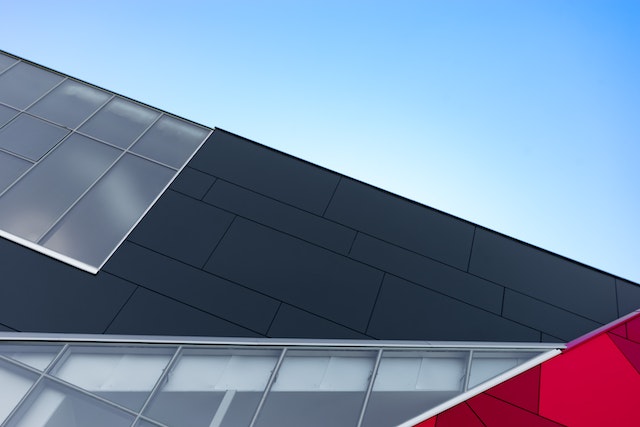Premier Web Design Services for the Hervey Bay Business Community
We come visit Hervey Bay all the time, for enjoyment and for business. Thanks to our Hervey Bay Web Design clients we have a great excuse to come visit often! The crazy bustling growth of Hervey Bay is such a clear contrast with the more quiet regions nearby. Come to where the action is, come to the bay. While we work with anyone remotely who prefers to do so – for our Hervey Bay customers we offer to visit in person.
Whether you need a corporate website, a refresher of how your local business presents itself online, a portfolio website or a sales funnel website including google ads management and success tracking – our Web Design Agency does it all proudly serving the Hervey Bay business community. Whether you are an established Hervey Bay business needing integration of your website form into internal workflows and perfect corporate id online – or whether you are the local Hervey Bay start up business wondering how to gain visibility online – we love you all and love putting our efforts towards your success.
Unlock Your Business's Online Potential with Custom Web Design in Hervey Bay!
Are you ready to take your business in Hervey Bay to the next level? Your online presence is crucial and a professionally designed website is the key to success. At our web design agency, we’re passionate about helping local businesses like yours thrive online. The secret of how we can create a successful website for your Hervey Bay business is this – you need to convey your goals and your vision – the better we understand it – the clearer the outcome will be.
Tailored Web Design Perfection
Our expert web designer for Hervey Bay understands that every business is unique. That’s why we create custom web designs that reflect your brand identity and vision. We don’t stop until you absolutely love your website, ensuring it perfectly represents your business to the world.
High-Performance E-Commerce Platforms
Looking to sell products or services online? Our e-commerce solutions are designed for success. We build high-performance e-commerce websites that not only look fantastic but also offer seamless shopping experiences for your customers. Boost your sales and expand your reach with our e-commerce expertise.
Website to Business Workflow Integrations
Efficiency is the name of the game in business. We specialize in integrating your website seamlessly with your business workflows. From lead generation to CRM systems and inventory management, we’ll ensure your website becomes a powerful tool that streamlines your operations. We do Microsoft 365 workflow integrations where you receive website form submissions delivered into your preferred microsoft task / application workflow and or stored on sharepoint in your audit compatible structure. Your website is a chance to automate boring and repetitive parts of customer service and an opportunity to do more with same staffing levels.
Local Expertise, Global Reach
While Hervey Bay is considered home turf, our web design services extend far beyond Hervey Bay. We have a proven track record of helping businesses from all industries succeed online, whether they’re local or Australia wide. Your success is our priority.
Why Choose WEB DESIGN 4 BUSINESS?
- Local Team: We’re your neighbors, and we understand the unique needs of Hervey Bay businesses.
- Custom Solutions: Your website will be tailor-made to meet your specific goals and objectives.
- Cutting-Edge Technology: We stay ahead of the curve with the latest web design trends and technologies.
- Affordable Pricing: Quality doesn’t have to break the bank.
Ready to transform your online presence? Contact us today!
Hervey Bay. Where Nature's Wonders and Coastal Charms Unite
Hervey Bay, a coastal paradise nestled along Queensland’s Fraser Coast, beckons travelers with its harmonious blend of natural wonders and coastal charm. Known as the “Whale Watching Capital of the World” and celebrated for its tranquil beaches and vibrant marine life, Hervey Bay is a destination that captivates both tourists and locals alike. This destination profile provides a comprehensive exploration of Hervey Bay, encompassing its tourist attractions and the key industries that shape its identity.
Tourism: A Marine Wonderland Beckons
Whale Watching Extravaganza
Hervey Bay’s most iconic attraction is undoubtedly its world-renowned whale watching experiences. Every year, from July to November, humpback whales migrate through the bay, offering a spectacular show of breaching, tail slapping, and playful antics. Tourists can embark on guided whale watching cruises for an up-close encounter with these majestic creatures, making Hervey Bay a must-visit destination for wildlife enthusiasts.
Fraser Island Adventures
Adjacent to Hervey Bay lies Fraser Island, the world’s largest sand island and a UNESCO World Heritage-listed site. This natural wonderland boasts pristine beaches, lush rainforests, and crystal-clear lakes. Visitors can explore Fraser Island on guided tours, which include visits to the awe-inspiring Lake McKenzie, the Maheno Shipwreck, and the vibrant sand dunes of the Pinnacles.
Hervey Bay Botanic Gardens
For those seeking tranquility and natural beauty, the Hervey Bay Botanic Gardens offer a serene oasis. These gardens are a testament to the region’s commitment to preserving its unique flora and fauna. Strolling through themed gardens, including the Bush Tucker Garden and the Orchid House, allows visitors to connect with the region’s indigenous and exotic plant life.
Local Industry: Economic Vitality in Coastal Paradise
Commercial Fishing
The local fishing industry plays a crucial role in Hervey Bay’s economy. The bay’s pristine waters are teeming with an abundance of seafood, including prawns, scallops, and various fish species. Hervey Bay’s fishing fleet supplies both domestic and international markets, contributing significantly to the region’s economic vitality. Visitors can savor the freshest catch at local seafood restaurants, fostering a connection with the thriving fishing community.
Tourism and Hospitality
The tourism and hospitality sector is a cornerstone of Hervey Bay’s economy. Hotels, resorts, and restaurants cater to travelers seeking a comfortable and memorable stay. The friendly and welcoming atmosphere of the local hospitality industry enhances the overall tourism experience, ensuring that visitors feel at home while exploring the region’s natural wonders.
Tourism and Industry Synergy
Hervey Bay’s tourism and local industries complement each other seamlessly, creating a sustainable economic ecosystem. The influx of tourists stimulates demand for local products, such as seafood and indigenous crafts, while also providing employment opportunities in the hospitality sector. Simultaneously, the region’s pristine environment, nurtured by the fishing industry’s sustainability efforts, continues to attract travelers seeking an authentic coastal experience.
Culture and Community: The Heart of Hervey Bay
Aboriginal Heritage
Hervey Bay is located within the traditional lands of the Butchulla people, and its history is deeply intertwined with Aboriginal culture. Visitors have the opportunity to engage with the region’s Indigenous heritage through guided cultural tours, storytelling sessions, and art exhibitions. These experiences foster a deeper understanding of the profound connection between the land and its traditional custodians.
Community Festivals
The vibrant community of Hervey Bay hosts a myriad of festivals and events throughout the year. The Hervey Bay Seafood Festival celebrates the region’s rich seafood culture, offering a tantalizing array of culinary delights. The Whale Festival, a tribute to the annual humpback whale migration, features art displays, live music, and family-friendly activities, creating a sense of unity and excitement within the community.
Hervey Bay, where nature’s wonders meet coastal charm, offers an immersive and enchanting experience for travelers and residents alike. From the mesmerizing spectacle of humpback whales to the pristine beauty of Fraser Island’s landscapes, Hervey Bay captures the essence of Queensland’s coastal allure.
The symbiotic relationship between tourism and local industry in Hervey Bay underscores its sustainable and prosperous future. As you explore the marine wonders, savor the freshest seafood, and connect with the vibrant culture of Hervey Bay, you’ll discover a destination that celebrates its natural gifts while nurturing a warm and welcoming community. In Hervey Bay, the heart of the Fraser Coast, nature’s beauty and coastal spirit unite to create an unforgettable experience.
Can I hire someone to design my website?
Yes, you can definitely hire someone to design your website. In fact, many individuals and businesses choose to hire professional web designers or web design agencies to create their websites. Here are some steps to help you get started:
- Define Your Requirements: Before hiring a web designer, it’s important to have a clear understanding of what you want your website to achieve and what features and functionality you need. Consider the purpose of your website, your target audience, and any specific design preferences you may have.
- Budget: Determine your budget for the web design project. Web design costs can vary significantly depending on the complexity of the project and the experience of the designer or agency.
- Find Potential Designers: You can find web designers through various channels:
- Freelancers: Platforms like Upwork, Freelancer, and Fiverr have many freelance web designers.
- Web Design Agencies: These are companies that specialize in web design and development.
- Word of Mouth: Ask for recommendations from friends, colleagues, or business associates who have had positive experiences with web designers.
- Portfolio and Reviews: When evaluating potential designers or agencies, review their portfolios to see examples of their previous work. Look for projects that are similar in style or complexity to what you have in mind. Additionally, check for client reviews and testimonials to gauge their reputation and reliability.
- Interview and Communication: It’s essential to have good communication with your chosen designer. Schedule interviews or meetings to discuss your project in detail. Ensure they understand your vision and goals, and ask questions about their process and timeline.
- Contracts and Agreements: Once you’ve chosen a designer or agency, make sure to have a clear and legally binding contract in place. This contract should outline the scope of work, timelines, payment terms, and any other important terms and conditions.
- Collaborate: Work closely with your chosen designer throughout the project, providing feedback and clarifications as needed. Regular communication is key to ensuring the project stays on track.
- Testing and Launch: After the design is complete, thoroughly test the website to ensure it functions correctly across different devices and browsers. Once you are satisfied with the final product, it can be launched for public access.
- Maintenance and Updates: Websites require ongoing maintenance and updates. Discuss post-launch support and maintenance with your designer or agency to ensure your website remains up-to-date and secure.
- Payment: Make sure to adhere to the payment schedule outlined in your contract and only release final payment once you are satisfied with the completed website.
Remember that the quality of your website can have a significant impact on your online presence and business success, so it’s important to invest in a reputable and skilled web designer or agency that aligns with your needs and objectives.
How do I find the best website design?
Finding the best website design for your specific needs involves a combination of research, planning, and careful consideration of your goals and preferences. Here are some steps to help you find the best website design:
- Determine Your Goals and Objectives:
- Clearly define the purpose of your website. Are you creating an e-commerce site, a blog, a portfolio, or something else?
- Identify your target audience and understand their needs and preferences.
- Define specific goals, such as increasing online sales, generating leads, providing information, or building brand awareness.
- Research Your Industry and Competitors:
- Look at websites within your industry to see what works and what doesn’t.
- Analyze your competitors’ websites to identify common design elements, content strategies, and user experience features.
- Create a Design Brief:
- Develop a detailed design brief that outlines your project’s objectives, target audience, key features, and design preferences. This will serve as a reference for designers or agencies you approach.
- Find Designers or Agencies:
- Seek recommendations from peers or colleagues who have had positive experiences with web designers or agencies.
- Use freelance platforms like Upwork, Freelancer, or Fiverr to find individual designers.
- Search for web design agencies with a strong portfolio and good reputation.
- Review Portfolios and Case Studies:
- Examine the portfolios and case studies of potential designers or agencies to assess the quality of their work.
- Look for designs that resonate with your vision and goals.
- Check for Responsive Design:
- Ensure that the designers or agencies you consider have experience in creating responsive websites that work well on various devices (desktop, mobile, tablet).
- Consider User Experience (UX):
- Good website design goes beyond aesthetics; it should prioritize user experience. Look for designers who emphasize user-friendly navigation and clear calls to action.
- Request Proposals or Quotes:
- Contact the designers or agencies you’re interested in and request proposals or quotes for your project.
- Provide them with your design brief and discuss your requirements in detail.
- Interview Potential Designers:
- Conduct interviews with potential designers or agencies to assess their communication skills, understanding of your project, and willingness to collaborate.
- Evaluate Pricing and Timeline:
- Compare the quotes and proposals you receive, considering factors like cost, project timeline, and included services.
- Be cautious of extremely low-cost options, as they may sacrifice quality.
- Check References and Reviews:
- Ask for references from previous clients and contact them to inquire about their experiences.
- Look for online reviews and testimonials to gauge client satisfaction.
- Assess Technical Expertise:
- Ensure that the designer or agency has the technical skills required to implement any specific features or functionality you need, such as e-commerce integration or custom coding.
- Review Contracts and Agreements:
- Before making a final decision, review the contract or agreement carefully to ensure it covers all project details, including scope, deliverables, payment terms, and timelines.
- Trust Your Instincts:
- Ultimately, choose a designer or agency that aligns with your vision and goals and with whom you feel comfortable working.
- Collaborate Actively:
- Throughout the design process, maintain open communication with the designer or agency, providing feedback and clarifications as needed.
Finding the best website design involves a combination of finding the right designer or agency and ensuring that the design aligns with your specific goals and objectives. By following these steps and conducting thorough research, you can increase your chances of achieving a website design that meets your needs and exceeds your expectations.
Who designs the look of a website?
The look and visual design of a website are typically created by a web designer or a team of web designers. These professionals specialize in crafting the visual elements of a website to make it aesthetically pleasing, user-friendly, and in alignment with the client’s brand and goals. Here’s an overview of the roles and responsibilities of web designers in designing the look of a website:
- Graphic Design: Web designers use graphic design skills to create the overall visual layout of a website. This includes designing elements such as the header, navigation menu, buttons, typography (font styles and sizes), color schemes, images, icons, and any other graphical elements that contribute to the website’s appearance.
- Layout Design: They determine the arrangement of content on each web page. This involves deciding where to place text, images, videos, and other elements to create a balanced and visually appealing composition. Layout design also includes considerations for responsive design, ensuring that the website looks good on various devices and screen sizes.
- User Interface (UI) Design: UI designers focus on creating the user interface elements of a website. They design the interactive components, such as forms, buttons, checkboxes, and dropdown menus, ensuring that they are intuitive and easy to use.
- Branding and Consistency: Web designers work to maintain brand consistency throughout the website. They incorporate the client’s branding elements, such as logos, colors, and fonts, to reinforce the brand identity.
- User Experience (UX) Design: While not exclusive to the visual design aspect, UX designers collaborate with web designers to ensure that the website’s visual design enhances the user experience. This includes optimizing navigation, ensuring readability, and improving overall usability.
- Prototyping and Wireframing: Before finalizing the visual design, designers often create wireframes and prototypes to outline the website’s structure and layout. These wireframes serve as a blueprint for the site’s design and functionality.
- Testing and Iteration: Web designers may conduct usability testing and gather feedback from stakeholders or users to make improvements to the design. This iterative process helps refine the visual design based on real-world usage and feedback.
- Collaboration: Designers often collaborate closely with web developers, who handle the technical implementation of the design. Effective communication between designers and developers is crucial to ensure that the design is faithfully translated into a functional website.
- Keeping Up with Design Trends: Web designers stay current with design trends and emerging technologies to ensure that the websites they create are modern and visually appealing.
In summary, web designers are responsible for creating the look and feel of a website, including its visual elements, layout, and user interface. They play a critical role in ensuring that a website is visually engaging, user-friendly, and aligned with the client’s brand and objectives.
How much does it cost to pay someone to design your website?
The cost of hiring someone to design your website can vary widely depending on several factors, including the complexity of the project, the experience and location of the designer or agency, the features and functionality you require, and whether you’re working with an individual freelancer or a web design agency. Here are some general guidelines to help you understand the potential cost ranges:
- Basic Website (Simple Design): For a straightforward, basic website with minimal features and a simple design, you might expect to pay anywhere from $500 to $2,000. This could be suitable for a small personal website or a simple business site.
- Small to Medium Business Website: A more comprehensive website for a small to medium-sized business, which includes features like a content management system (CMS), responsive design, and additional functionality such as contact forms and a blog, may range from $2,000 to $10,000 or more.
- E-Commerce Website: If you plan to sell products online, the cost can vary significantly based on the number of products, the complexity of the e-commerce platform, and integration with payment gateways. E-commerce websites often start at around $3,000 but can go well into the five-figure range for larger and more complex setups.
- Custom and Complex Projects: For highly customized websites with advanced features, extensive e-commerce functionality, or unique design requirements, costs can exceed $10,000 and easily reach $20,000 or more. These projects often involve a team of designers and developers working over an extended period.
- Ongoing Maintenance and Updates: Keep in mind that website design is just one aspect of the cost. You may also incur ongoing expenses for website maintenance, hosting, domain registration, and periodic updates.
- Designer’s Experience and Location: The experience and location of the designer or agency can influence pricing. Designers with a strong portfolio and reputation may charge higher rates. Additionally, designers in regions with a higher cost of living tend to have higher rates compared to those in lower-cost areas.
- Additional Services: Some designers or agencies may offer additional services like SEO optimization, content creation, and digital marketing, which can add to the overall cost.
- Revisions and Changes: The number of revisions and changes you request during the design process can also affect the final cost. If you frequently alter the project scope or design direction, it may lead to additional charges.
It’s essential to obtain detailed quotes or proposals from potential designers or agencies that outline the scope of work, costs, and timelines specific to your project. Be transparent about your budget and requirements to ensure that you receive accurate estimates. Remember that investing in a well-designed website can have a significant impact on your online presence and business success, so consider your website as a long-term asset rather than a one-time expense.
Are You a Hervey Bay local Business Ready to get started with your new Website?
Contact us today for an obligation free chat to find out what we can do for You. We love our Hervey Bay clients. We come for a swim, shopping and a good day out.





